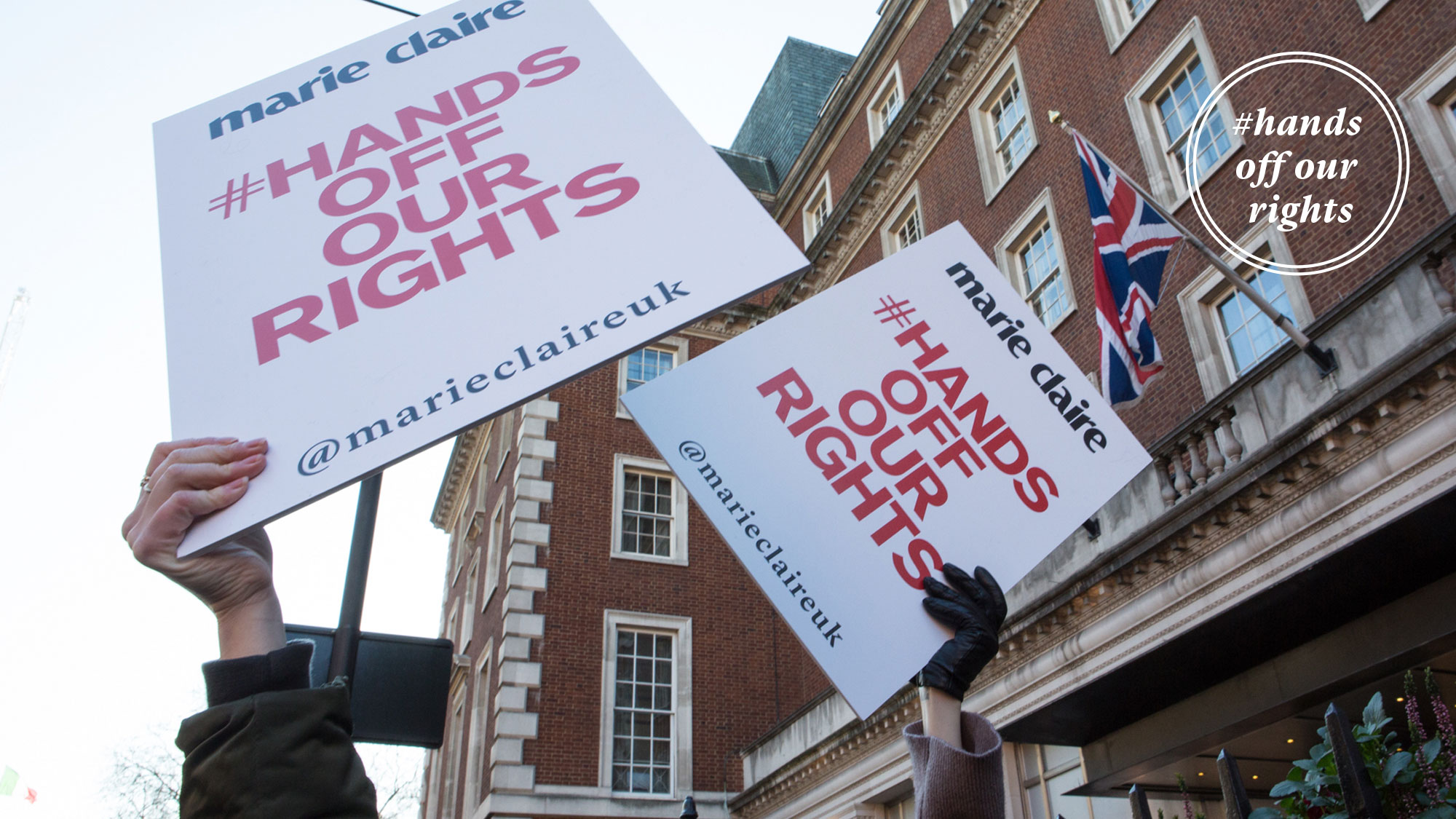Women’s Rights in 60 seconds
Think you know yours?


Celebrity news, beauty, fashion advice, and fascinating features, delivered straight to your inbox!
You are now subscribed
Your newsletter sign-up was successful
Think you know yours?
Women's rights have come a long way to give us the freedoms we often take for granted now. Yet it's no exaggeration to say that women's rights are also under serious threat today, with gains we've made over the last century being clawed back by right-wing political agendas including President Trump's in the US and President Putin's in Russia. Just this week, meanwhile, Polish MEP Korwin-Mikke told the European Parliament that women 'must earn less than men because they are weaker, smaller and less intelligent'.
Where are women's rights most under threat?
Domestic Violence
Domestic violence overwhelmingly effects women and children yet it was not taken seriously, (or even openly spoken about) in the UK until 1971, when the first shelter for abused women was set up in Chiswick. Thankfully, the law has moved on since then, and domestic violence as well as marital rape and forced marriage, have since been made criminal offences in the UK. Yet the clock could be about to turn back, if not here then elsewhere - shockingly, two months ago, Russia decriminalised domestic violence, stating that abuse resulting in bleeding or bruises would now be dealt with as a administrative rather than a criminal offence. Even here in the UK, cuts to social services affect the options that women in abusive relationships have - last year, two-thirds of women's shelters were facing closure due to budget cuts.
Sexism and Misogyny
Although women broke into the workforce en masse after the second world war, sex discrimination in the workplace was not criminalised until 1975, and equal pay in the UK is still a distant dream - at current rates it won't close until 2069, when most of us will (hopefully) be happily retired. In America, a man who boasted about sexual assault and grabbing women 'by the pussy' was elected to the highest office in government. In the UK, Phillip Davies MP, who told a men's rights conference that 'feminist zealots want to have their cake and eat it' has been elected to the Women and Equalities Committee. And did you catch Tory MP Nicholas Soames 'woofing' at SNP colleague Tasmina Ahmed-Sheikh during a speech in the House of Commons? These people were all voted in to power - they didn't arrive there by themselves. Sexism is still alive and kicking in 2017.
Representation
Celebrity news, beauty, fashion advice, and fascinating features, delivered straight to your inbox!
Despite women gaining the vote in 1918, and the first female MP taking her seat in the House of Commons the following year, male British MPs still account for 70% of the total MPs in the House of Commons. Representation is even worse in the House of Lords, where women make up just 24% of the total peers. This male dominance hardly encourages young women into politics - especially when the daily abuse suffered by female MPs was brought to light after the death of Jo Cox, leading to the hashtag #thankyourMP trending on Twitter. Things are not much better over in the US, with 75% of Trump's cabinet consisting of men. The dangers of this gender imbalance in government are hardly more evident than in the current legislation being rolled out in the US (remember that photo of seven men signing an anti-abortion measure into law?). Now more than ever before, it is crucial for women to be represented in government.
Contraception
In 1961 the pill became available free of charge to married women on the NHS and six years later this was extended to all women. For the first time ever women could finally be in control of their bodies, able to have children (and consequently give up work) as and when they liked. However this freedom of choice is currently under threat worldwide - UK reports have highlighted problems accessing contraception across the UK, while over in the US Trump and his cabinet are doing their best to take down Planned Parenthood and repeal Obamacare - meaning millions of women across the US and globally now face losing free birth control. We are faced with turning back the clock to a time where women were controlled by their bodies and not the other way around.
Abortion
The 60s were a defining decade for women in the UK, as abortion finally became legal in 1967. Yet the right to choose was never extended to women in Northern Ireland, and crucially still isn't. In 2015, over 3,000 Irish and Northern Irish women crossed the Irish Sea to access abortion in England and Wales. It's an expensive and traumatic journey. Without money, pregnant women become either mothers or criminals. A girl in Belfast was last year handed a suspended prison sentence for procuring an abortion - she was reported by her housemates. In America, abortions are becoming harder and harder to obtain. In Paraguay, a ten-year-old girl who became pregnant after being allegedly raped by her step-father was refused an abortion.
Here at Marie Claire we say:
Don’t turn back the clock #Hands Off Our Rights Share our video if you agree

